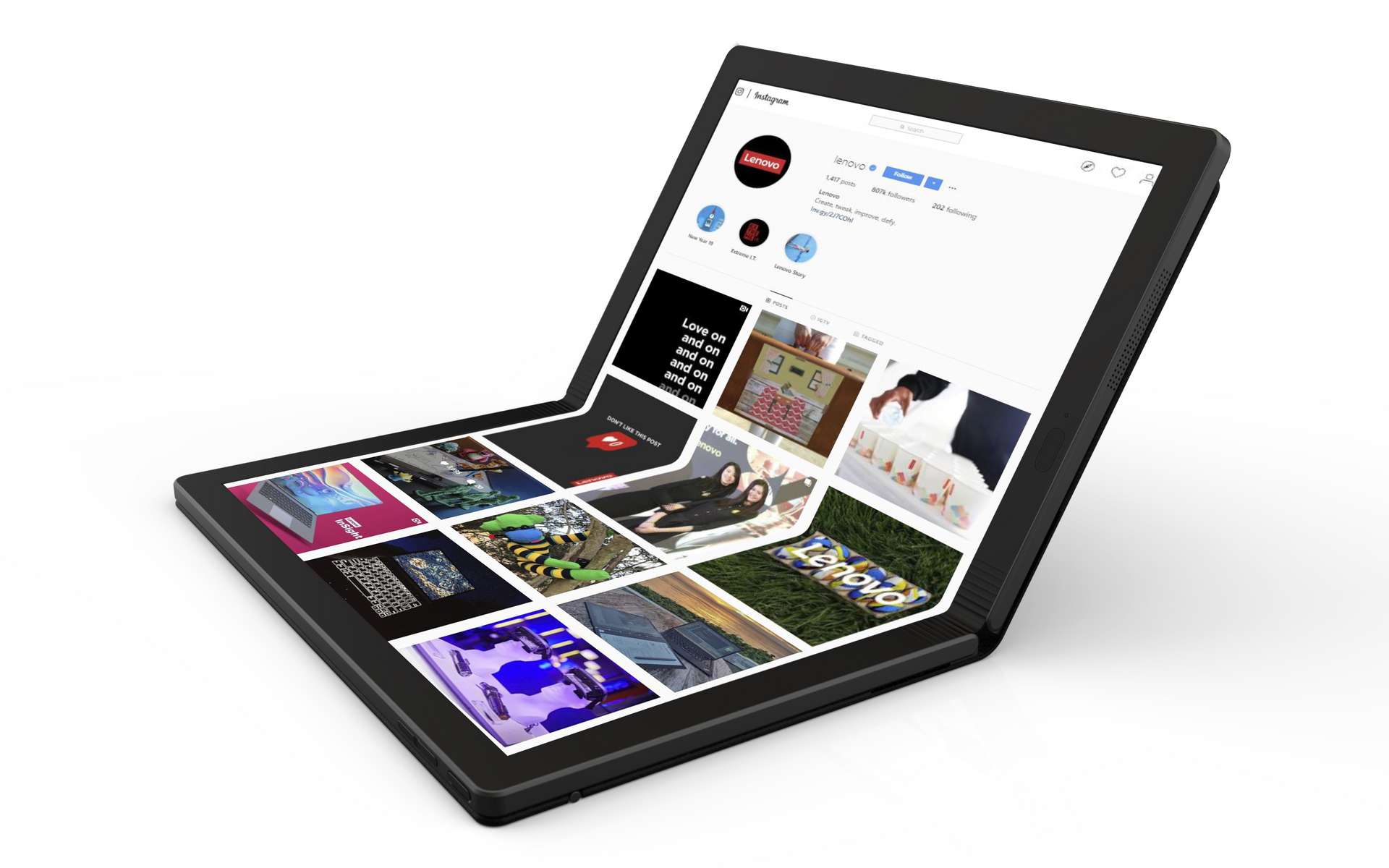Dell could also embark on the design of a laptop PC whose keyboard will be replaced by a screen. The American manufacturer has obtained two patents describing complex hinges adapted to a future dual-screen system.
In the wake of the release of several models of foldable smartphones, it is the turn of computer manufacturers to succumb to fashion, and perhaps the revolution of folding screens. In the world of laptops, it is more about doubling the surface of the screen by replacing the physical keyboard with a screen. In this sense, Lenovo has unveiled a model of PC laptop which usually devoted to the keyboard part is a screen. It should be marketed in 2020 in the Thinkpad X1 range.
Today, it’s Dell’s turn to unveil its intentions for this type of computer. The American manufacturer has obtained several patents describing a device with a dual display. As always, the problem remains that of the folding of this dual-screen. In a first patent filed at the US Patent and Trademark Office on February 2018, and obtained in early August 2019, Dell attacked the case of the device.
The patent describes the mechanism for folding the chassis by minimizing the space between the two parts of the laptop. The hinge has a set of tiny gears designed to provide enough strength so that the main screen is maintained in the desired inclination while offering significant flexibility and especially by minimizing the gap between the two screens.

In a second patent filed in March and granted at the end of August, Dell describes another hinge concept. The principle remains the same: to reduce the space between the two screens to the minimum so that one has the impression that it is only one. The proposed hinge is reminiscent of the one found on Microsoft’s Surface Book. In both cases, it is not a single large screen, but two screens that are supposed to be tactile. It remains to be seen when Dell plans to release such a laptop.
Ridding the computer of a physical keyboard for the benefit of its virtual counterpart, or the need for a suitable control interface, would present a real revolution in computing. For its part, Microsoft has already planned to adopt Windows with a variation called Core OS, expected in 2020, to equip such PCs. This OS should be found on a dual-screen Surface model currently known as Centaurus code name.